Breakfast for the Morning Exerciser
If you exercise first thing in the morning, you may not want a big pre-exercise breakfast; too much food can feel heavy and uncomfortable. However, you can likely tolerate half a breakfast, such as half a bagel, a slice of toast, or a banana before your workout.
Just 100 to 300 calories can put a little carbohydrate into your system, boost your blood sugar so that you are running on fuel, not fumes, and enhance your performance.
You'll likely discover this small pre-exercise meal adds endurance and enthusiasm to your workout. In a research study, athletes who ate breakfast were able to exercise for 137 minutes as compared to only 109 minutes when they skipped this pre-exercise fuel.
After his morning workout, Jim, a banker, felt rushed and was more concerned about getting to work on time than eating breakfast. Using the excuse "No time," he overlooked the importance of refueling his muscles.
I reminded him: Muscles are most receptive to replacing depleted glycogen stores within the first two hours after the workout, regardless of whether or not the athlete feels hungry. I encouraged Jim to be responsible! Just as he chose to make time for exercise, he could also choose to make time for breakfast.
One simple post-exercise breakfast is fluids. Liquid breakfasts take minimal time to prepare and very little time to drink, yet they can supply the calories, water, carbohydrates, protein, vitamins and minerals you need all in a travel mug. (You can always get coffee at the office.)
Because Jim felt thirsty after his morning workout, he found he could easily drink 16 ounces of juice or lowfat milk. Sometimes, he'd make a refreshing fruit smoothie with milk, banana and berries.
Later on mid-morning, when his appetite returned, Jim enjoyed the rest of his breakfast: (instant) oatmeal, multi-grain bagel with peanut butter, yogurt with granola, a banana or any other carbohydrate-rich foods that conveniently fit into his schedule.
This nutritious "second breakfast" refueled his muscles, abated hunger and curbed his lunchtime cookie cravings.
Breakfast for the Noon-time, Afternoon and Evening Exerciser
A hearty breakfast is important for people who exercise later in the day. It not only tames hunger but also provides the fuel needed for hard workouts.
Research has shown that athletes who ate breakfast, then four hours later enjoyed an energy bar five minutes before a noontime workout were able to exercise 20% harder at the end of the hourlong exercise test compared to when they ate no breakfast and no pre-exercise snack. (They worked 10 percent harder with only the snack.)
Breakfast works! Breakfast + a pre-exercise snack works even better!
What's for Breakfast?
From my perspective as a sports nutritionist, one of the simplest breakfasts of champions is a wholesome cereal with lowfat milk, banana and orange juice. This provides not only carbohydrates to fuel the muscles, but also protein (from the milk) to build strong muscles, and numerous other vitamins and minerals such as calcium, potassium, vitamin C, iron (if you choose enriched breakfast cereals) and fiber (if you choose bran cereals).
Equally important is the fact that cereal is quick and easy, requires no cooking, no preparation, no refrigeration. You can keep cereal at the office, bring milk to work and eat breakfast at the office. Breakfast is a good investment in a productive morning.
The Bottom Line
Breakfast works wonders for improving the quality of your diet. That is, eating breakfast results in less "junk food" later in the day. Breakfast also enhances weight control, sports performance, daily energy levels and future health.
Breakfast is indeed the meal of champions. Make it a habit no excuses!
Sample Grab-and-go Sports Breakfasts
Copyright: Nancy Clark 2002
Nancy Clark, MS RD CSSD (Board Certified Specialist in Sports Dietetics) counsels casual and competitive athletes in her private practice at Healthworks, the premier fitness center in Chestnut Hill MA (617-383-6100). Her Sports Nutrition Guidebook, new Food Guide for Marathoners, and Cyclist's Food Guide are available at www.nancyclarkrd.com. Also see www.sportsnutritionworkshop.com for information about her online workshop.
- 2
- of
- 2
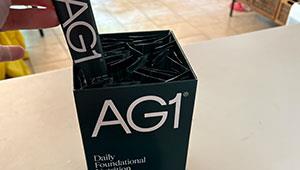
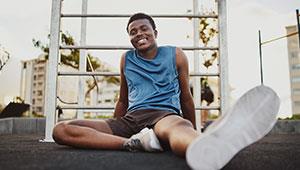
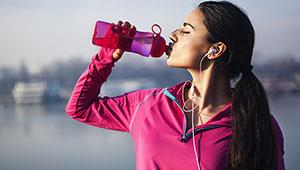

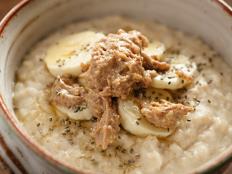
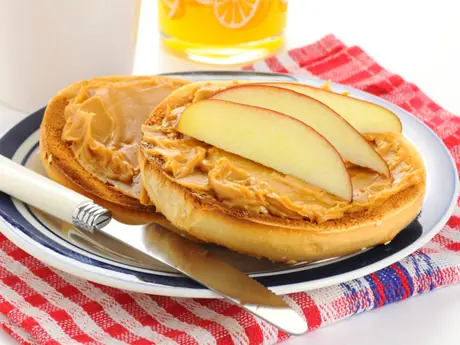
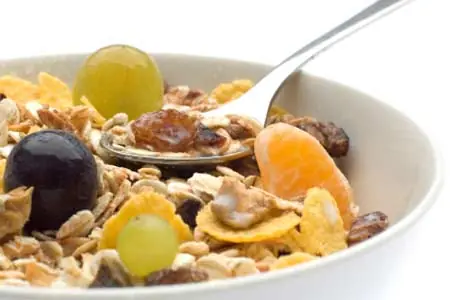

Discuss This Article